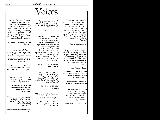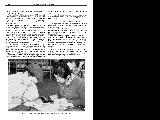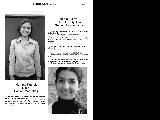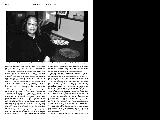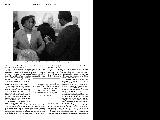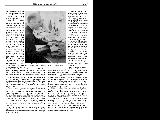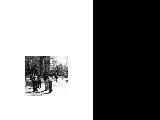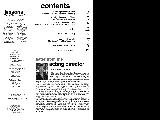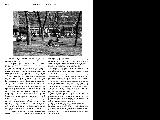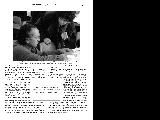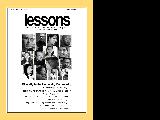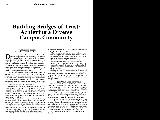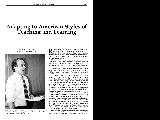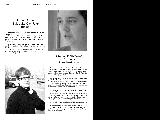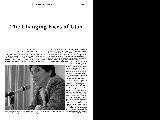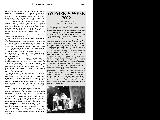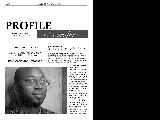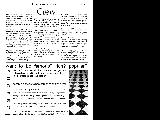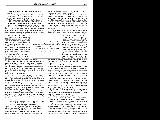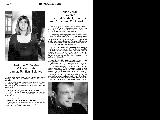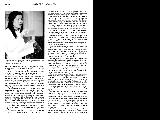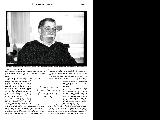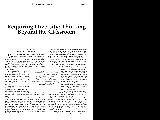| OCR Text |
Show page 6 lessons, Spring/Summer 2002 says this is a tactic used to make the professor look stupid and the student look smart). "Students [in America] don't mind being very honest and straightforward." He explains that if students don't understand or think something is unclear, they usually ask the professor to clarify it. In Europe, this would be an embarrassment to the student and would be seen as demonstrating low intelligence. The European classroom atmosphere is very formal and disciplined, restricting the students from expressing their personality. Because of this restriction, European students tend to be more personable with their professors outside of the classroom, creating relationships and picking mentors for educational assistance. The American classroom relationship between the instructor and student is also very different from Asian cultures. Assistant Professor Mei-Ling Yang, who teaches media and diversity in the communication department, agrees that there are more interactions with the students in American classroom settings than in Taiwan, where she grew up. Yang says that American students are more personable than Taiwanese both inside and outside the classroom, but also require more individual assistance to successfully complete their studies. Visiting Professor Therese De Raedt, who was shocked when she taught her first American class at a poor Ohio college where students sat on bean bags instead of chairs, also recognized a difference in American teaching styles. She says that in Europe the professor can directly criticize the students, and are actually expected to point out their mistakes. "I feel that here you must first be positive then criticize, or the students may take offense," she says. De Raedt, who grew up in Belgium and currently teaches French literature and culture in the language department, recalls that she was too harsh with students when she first taught in America. She realized that her native teaching customs were not appropriate or accepted in an American classroom setting. Her students thought her constructive criticism was rude and offensive. She says she has learned to be "more careful with her choice of words." In addition to putting a positive slant on student feedback, De Raedt said she also struggled with language mistakes she unknowingly made. Visiting Professor Adriano F. Comollo, who grew up in Italy and teaches Italian in the language department, agrees that it can be more demanding and frustrating to teach Americans. "There are more limitations. Since [American] students are not exposed to other languages, their grammar tends to be poor," he says. The universal elements of language composition and sentence structure are emphasized in educational systems outside of the United States, since many foreign countries learn additional non-native languages that employ these concepts. Comollo points out that it is difficult for American students to accept the concepts of new languages without knowing the basics of their own. Comollo teaches about his culture in his native tongue, and says that students are afraid to criticize his country because they are concerned it might hurt his feelings. Although students are reluctant, he encourages the criticism because it enhances the learning process. "It's important to be frank with the students since Americans tend to be self-critical. If not, they won't progress," he says. He makes sure students understand that criticism of his country is acceptable and even welcomed. This is also a teaching tactic Philippos Savvides uses. As an adjunct instructor in the political science department, he grew up in Cyprus, a Mediterranean island close to Turkey and Egypt. He jokes about his culture to generate arguments from the students. Although he invites discussions about his country, he says that his cultural characteristics often seem peculiar to the students. Using a lot of animation and hand gestures, Savvides enjoys intertwining his native actions with American teaching styles. Comollo says language is another challenge he faces. "Language is like the Tower of Babel. It creates barriers between different cultures," he says. Outside the language department, Comollo feels that many Americans think that he can't express himself well or is less competent because of his thick accent. He says he must work hard to convince Americans that he is educated and intelligent and should be taken seriously. Overcoming misconceptions and stereotypes is a challenge many non-natives struggle with in America. Finding herself in similar situations, Yang remembers a student commenting to her that she was imposing Asian-style discipline. "To me, the student's comment reflected on Assistant Professor Mei-ling Yang lectures to her Media and Diversity class. She has had to deal with students' misconceptions about her culture's influence on her teaching style. |

